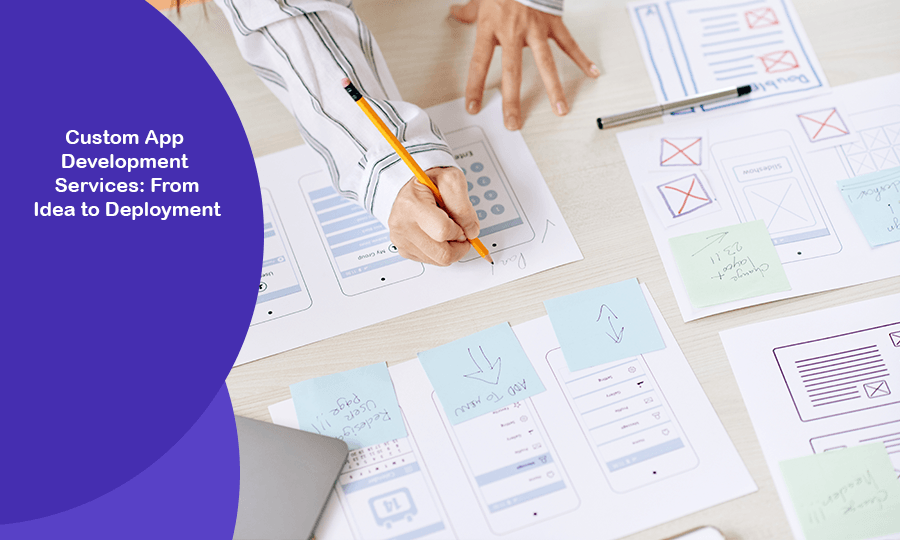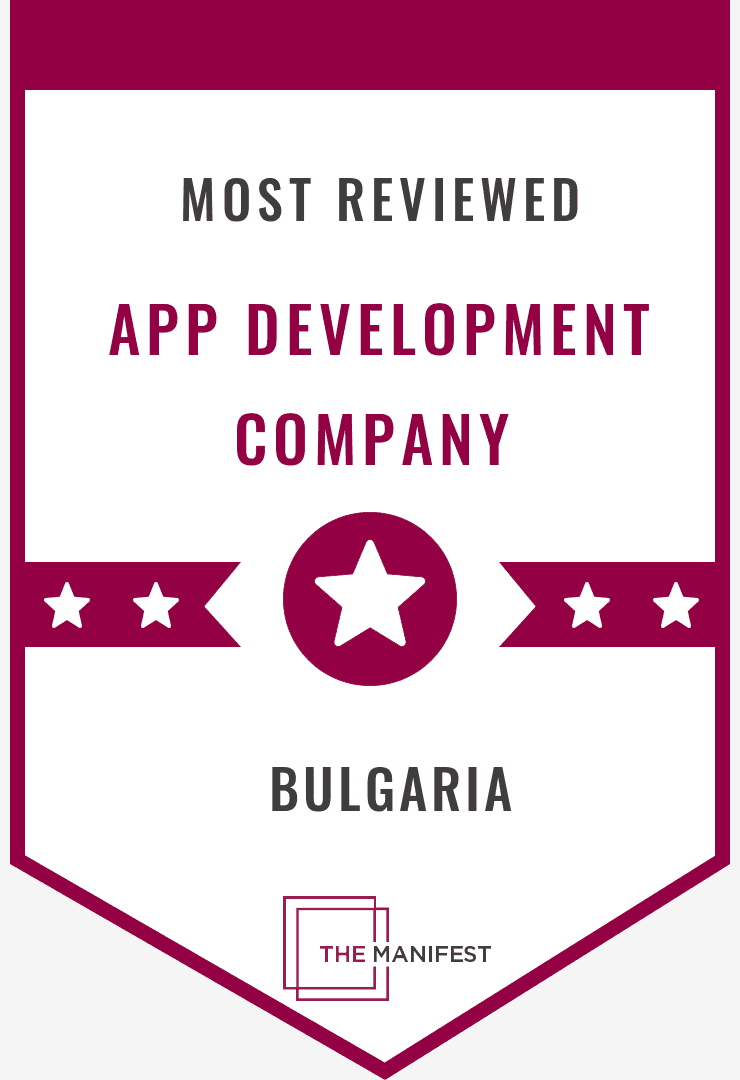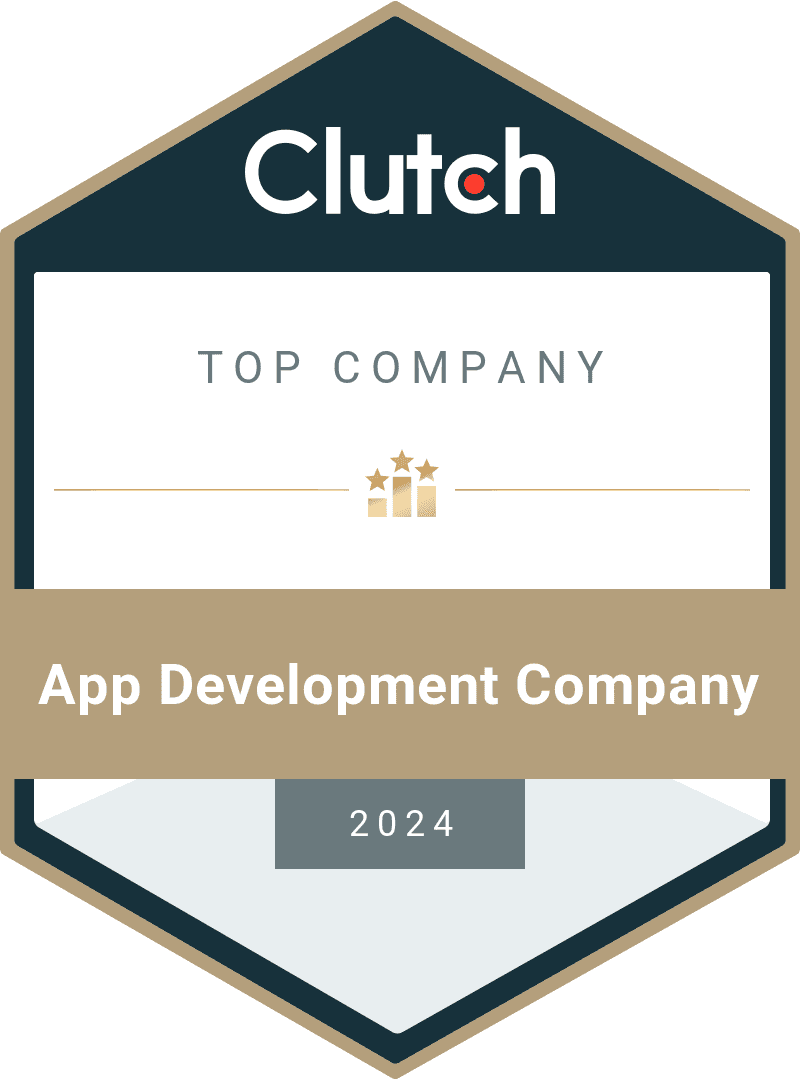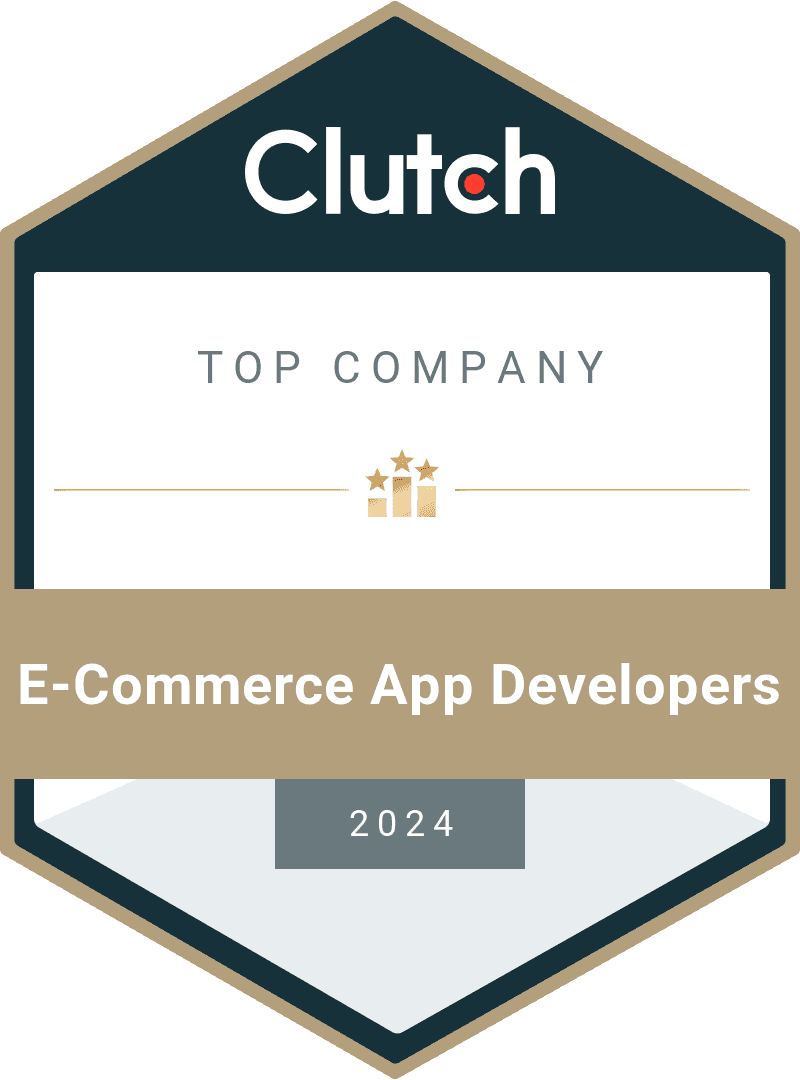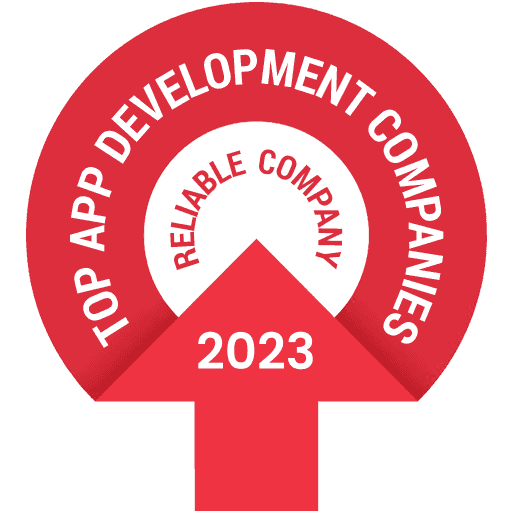Having a custom mobile app is crucial for businesses. These apps help companies meet their specific needs and provide a better experience for their customers. Custom mobile app development allows businesses to create unique solutions that perfectly match their requirements. This article will guide you through the entire process of custom app development, from the initial idea to the final deployment, giving you a clear understanding of what it takes to bring your app vision to life.
Understanding the Need for a Custom App
Identifying Business Requirements
The first step in custom mobile application development is understanding why you need a custom app. Businesses must figure out their specific needs and decide if existing solutions can meet those needs. Often, ready-made solutions may not have all the features you need or may not integrate well with your current systems. Custom mobile app development allows you to have an app tailored to your exact requirements.
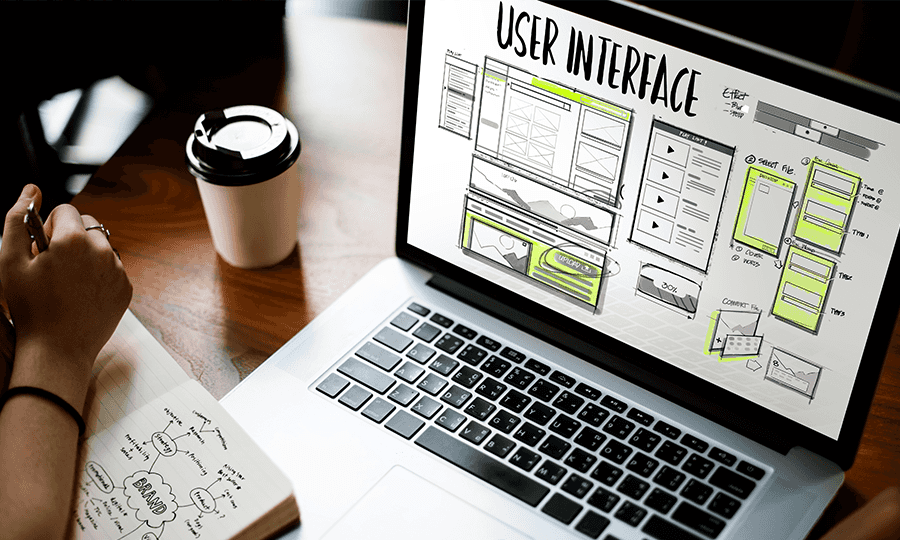
Benefits of Custom App Development
Custom mobile app development offers several advantages over off-the-shelf solutions:
- Unique Features: Custom apps can include features that are specific to your business needs.
- Better Integration: Custom apps can integrate seamlessly with your existing systems and software.
- Enhanced Security: Custom apps can be designed with your specific security needs in mind.
- Improved User Experience: Custom apps can be designed to provide a better experience for your users.
Ideation and Conceptualization
Conducting Market Research
Once you understand the need for a custom app, the next step is to come up with ideas and concepts. This involves conducting thorough market research to understand your target audience and their needs. Market research helps you identify what your customers want and how your app can meet those needs.
Defining Core Features
Based on your research, you can define the core features and functionality of your app. These are the main things your app will do. For example, if you are developing a custom mobile app for a restaurant, the core features might include online ordering, table reservations, and a menu display.
Creating a Project Roadmap
After defining the core features, you create a project roadmap and timeline. This is a plan that outlines the steps you will take to develop the app and when each step will be completed. A clear roadmap helps ensure that the development process stays on track and that all team members know what to expect.

Choosing the Right Development Partner
Criteria for Selecting a Custom App Development Company
Choosing the right custom mobile application development company is crucial for the success of your project. Here are some key criteria to consider:
- Experience and Expertise: Look for a company with experience in developing custom apps similar to what you need.
- Portfolio: Check their portfolio to see examples of their past work.
- Client Testimonials: Read reviews and testimonials from their previous clients.
- Workflow and Methodology: Understand their development process and ensure it aligns with your needs.
Importance of a Reliable Development Partner
A reliable development partner will have a proven track record of delivering successful custom app development services. They will be able to provide insights into their workflow and methodology, ensuring a smooth collaboration and effective communication throughout the development process.
Planning and Design
Defining Project Scope and Requirements
The planning and design phase involves defining the project scope and requirements. This means detailing what the app will do, what features it will have, and how it will function. Clear requirements help ensure that everyone involved in the project understands what needs to be done.
Creating Wireframes and Prototypes
Wireframes and prototypes are visual representations of your app. Wireframes are simple sketches that show the layout of the app, while prototypes are more detailed and interactive versions that allow you to test the app’s functionality. Creating wireframes and prototypes helps you visualize the app and make necessary adjustments before development begins.
Importance of UX and UI Design
User experience (UX) and user interface (UI) design are crucial components of app development. UX design focuses on how the app works and how users interact with it, while UI design focuses on how the app looks. Good UX and UI design can significantly impact the app’s usability and user satisfaction. Collaborating with stakeholders for feedback and approval ensures that the app design meets the expectations and needs of the target audience.
Development Phase
Choosing the Right Technology Stack
The development phase involves writing the code for the app. This starts with choosing the right technology stack. The technology stack includes the programming languages, frameworks, and tools used to develop the app. The choice of technology stack depends on the app’s requirements and the platforms it will run on.
Setting Up the Development Environment
Setting up the development environment involves preparing the tools and systems needed for development. This includes setting up version control systems, continuous integration tools, and development servers. A well-prepared development environment helps ensure a smooth development process.
Agile vs. Waterfall Methodologies
There are different methodologies for managing the development process. Two common ones are Agile and Waterfall. Agile is an iterative approach that involves developing the app in small increments and continuously testing and improving it. Waterfall is a linear approach where each phase of development is completed before moving on to the next. Agile is more flexible and allows for changes throughout the development process, making it the preferred choice for most custom mobile app development projects.
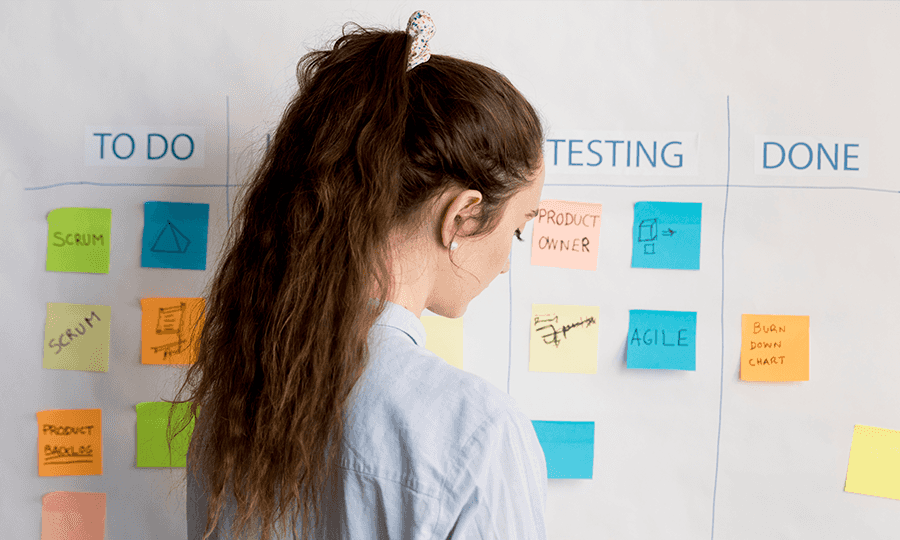
Importance of Continuous Integration and Testing
Continuous integration involves regularly merging code changes into a central repository and automatically testing them. This helps catch and fix bugs early, ensuring that the app is always in a deployable state. Testing is a critical part of the development process and helps ensure that the app works as expected.
Testing and Quality Assurance
Types of Testing
Testing and quality assurance (QA) are crucial to delivering a robust and reliable custom mobile application. Different types of testing are conducted to ensure the app performs well under different conditions:
- Functional Testing: Ensures that the app’s features work as expected.
- Performance Testing: Checks how well the app performs under different conditions, such as high traffic.
- Security Testing: Ensures that the app is secure and protects user data.
- Usability Testing: Ensures that the app is easy to use and provides a good user experience.
Importance of Automated Testing
Automated testing involves using tools to run tests automatically. This can save time and ensure that tests are run consistently. Automated testing is especially useful for repetitive tasks and can help catch bugs early in the development process.
User Acceptance Testing (UAT) and Feedback Incorporation
User acceptance testing (UAT) involves testing the app with real users to get their feedback. This helps ensure that the app meets the needs and expectations of its users. Feedback from UAT is used to make final adjustments and improvements to the app before it is launched.
Ensuring Compliance with Industry Standards and Regulations
Ensuring that the app complies with industry standards and regulations is crucial. This includes data protection regulations, accessibility standards, and other relevant guidelines. Compliance helps avoid legal issues and ensures that the app is safe and reliable for users.
Deployment and Launch
Preparing for App Deployment
The deployment and launch phase involves preparing the app for release. This includes final checks and optimizations to ensure that the app is ready for users. It also involves setting up the necessary infrastructure for the app to run smoothly.
Choosing the Right Deployment Platform
Choosing the right deployment platform is crucial for reaching your target audience. This could be the App Store for iOS apps, Google Play for Android apps, or other platforms depending on your target users. Each platform has its own requirements and guidelines that must be followed.
Setting Up App Analytics and Monitoring Tools
Setting up app analytics and monitoring tools helps track the app’s performance after launch. These tools provide valuable insights into how users are interacting with the app, what features are popular, and where there may be issues. This information is crucial for making data-driven decisions and improvements.
Creating a Marketing and Launch Strategy
A marketing and launch strategy is essential for ensuring that your app reaches its intended users. This involves creating buzz around the app, using social media, press releases, and other marketing channels. A well-planned launch strategy can significantly impact the app’s success.
Post-Launch Support and Maintenance
Importance of Ongoing Maintenance and Updates
Post-launch support and maintenance are vital for the long-term success of a custom mobile application. Ongoing maintenance involves regularly updating the app to fix bugs, add new features, and ensure compatibility with new devices and operating systems. Regular updates keep the app relevant and improve user satisfaction.
Handling User Feedback and Bug Fixes
After the app is launched, it’s important to listen to user feedback. Users may report bugs, suggest new features, or provide other feedback. Handling this feedback promptly and effectively helps improve the app and keep users happy.

Planning for Future Enhancements and Scalability
As your business grows, your app may need to be updated to include new features or handle more users. Planning for future enhancements and scalability ensures that your app can grow with your business. This may involve optimizing the app’s performance, improving its infrastructure, or adding new features.
Providing Customer Support and Technical Assistance
Providing customer support and technical assistance is crucial for ensuring a positive user experience. Users may need help with using the app, reporting issues, or providing feedback. A good support system helps address these needs and fosters customer loyalty.
Final Thoughts on Custom App Development Services Process
Custom mobile application development is a comprehensive process that involves careful planning, design, development, and ongoing support. By understanding the need for a custom app, selecting the right development partner, and following a structured development process, businesses can create tailored solutions that meet their unique needs. Custom app development offers numerous benefits, including enhanced functionality, better user experience, and the ability to integrate unique features. It’s a worthwhile investment for businesses looking to stay competitive in the digital age.
By following the steps outlined in this article, you can ensure a successful custom mobile app development process that brings your vision to life and meets your business goals. Whether you are working with a custom android app development company or a broader custom mobile app development company, understanding the entire journey from idea to deployment is key to creating a successful and effective mobile application.
Relevant Articles:

